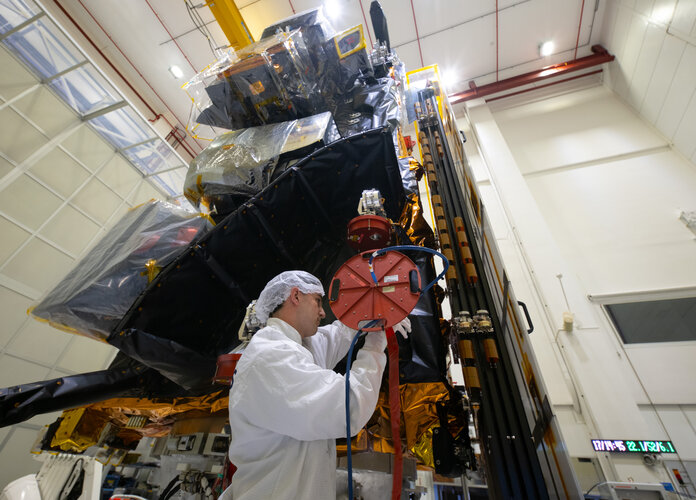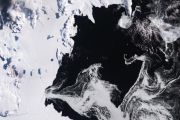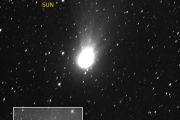
Copernical Team
The International Space Station is too clean—what does that tell us about how to co-exist with bugs on Earth?
This request seems a bit unusual, so we need to confirm that you're human. Please press and hold the button until it turns completely green. Thank you for your cooperation!
Press and hold the button
If you believe this is an error, please contact our support team.
185.132.36.159 : 12844951-144b-4916-8c72-a7e07120
Gateway lunar space station's first habitation module arrives in U.S.
This request seems a bit unusual, so we need to confirm that you're human. Please press and hold the button until it turns completely green. Thank you for your cooperation!
Press and hold the button
If you believe this is an error, please contact our support team.
185.132.36.159 : b698c788-7a83-4747-8c40-d39db5d8
A US-Russian crew of 3 arrives at the International Space Station
This request seems a bit unusual, so we need to confirm that you're human. Please press and hold the button until it turns completely green. Thank you for your cooperation!
Press and hold the button
If you believe this is an error, please contact our support team.
185.132.36.159 : 53b1c933-a654-4397-bc79-0a79e202
ESA links with Japan for speedy and secure communications

People will communicate up to a thousand times faster using high-capacity optical links between satellites, thanks to a partnership agreed today between the European Space Agency (ESA) and the Space Compass Corporation in Japan.
Weather, climate and air quality missions on display

The first of the new generation of MetOp satellites, MetOp-SG Satellite-A, together with the instrument for the Copernicus Sentinel-5 mission, are now ready to be shipped to their launch site. But before the last leg of their terrestrial journey, they were on display to the media at Airbus’s facilities in Toulouse, France.
Moon tools to the test at LUNA
 Image:
Moon tools to the test at LUNA
Image:
Moon tools to the test at LUNA Smile meets Maxwell
 Image:
Smile meets Maxwell
Image:
Smile meets Maxwell Sierra Space advances secure GPS tech for US Space Force initiative
 Sierra Space has successfully showcased its Resilient GPS (R-GPS) satellite technology, a critical advancement for the U.S. Space Force's efforts to strengthen national defense through more robust navigation systems. Developed in partnership with General Dynamics Mission Systems, the demonstration validated the generation of all necessary GPS navigation signals for the R-GPS mission, addressing
Sierra Space has successfully showcased its Resilient GPS (R-GPS) satellite technology, a critical advancement for the U.S. Space Force's efforts to strengthen national defense through more robust navigation systems. Developed in partnership with General Dynamics Mission Systems, the demonstration validated the generation of all necessary GPS navigation signals for the R-GPS mission, addressing Smartphone sensor array reimagined as ultra-precise antimatter imaging system
 In a major advance for antimatter research, scientists from CERN's AEgIS collaboration have engineered a groundbreaking imaging system by adapting the image sensors found in mobile phone cameras. The innovation aims to provide unprecedented spatial resolution in tracking the annihilation of antihydrogen particles, a vital step toward precisely measuring how antimatter responds to Earth's gravity
In a major advance for antimatter research, scientists from CERN's AEgIS collaboration have engineered a groundbreaking imaging system by adapting the image sensors found in mobile phone cameras. The innovation aims to provide unprecedented spatial resolution in tracking the annihilation of antihydrogen particles, a vital step toward precisely measuring how antimatter responds to Earth's gravity NASA uncovers complex teamwork in magnetic bacteria
 In a breakthrough study, researchers backed by NASA have explored the remarkable cooperative behavior of a rare form of bacteria that function as if they were a unified multicellular entity. These organisms, known as multicellular magnetotactic bacteria (MMB), are the only bacteria currently known to display this specific type of obligate multicellularity, offering a compelling model for how com
In a breakthrough study, researchers backed by NASA have explored the remarkable cooperative behavior of a rare form of bacteria that function as if they were a unified multicellular entity. These organisms, known as multicellular magnetotactic bacteria (MMB), are the only bacteria currently known to display this specific type of obligate multicellularity, offering a compelling model for how com 






























